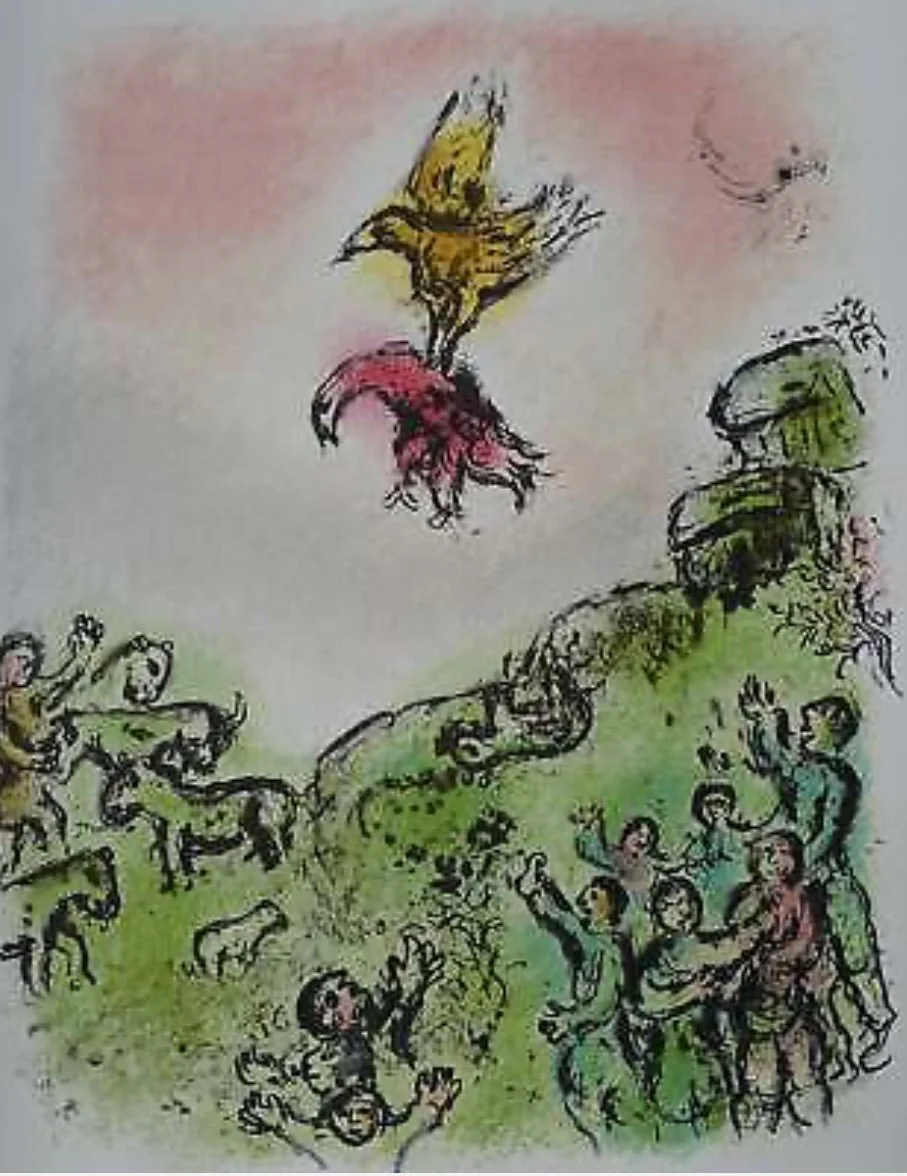SIGNS, OMENS, UNREST
“And Zeus in all his wisdom heard that prayer. He thundered at once, out of his clear blue heavens high above the clouds, and Odysseus' spirit lifted.”
Art: Marc Chagall, The Omen, Bird and Eagle.
Planning to slaughter the suitors in the morning, Odysseus lied awake in the hall. His journey has been long. It’s almost time. But the suitors continue to abuse hospitality. They have no idea the storm is coming. Athena reassures him and reminds him that the gods are on his side. He prays for a sign and Zeus answers with a thunderclap, although there are no clouds in sight—a clear omen. We learn of a loyal serving woman who grinds grain and prays for the suitors’ destruction, a reminder that Odysseus is not only about to reclaim his home and power, but to liberate the people of Ithaca. At every twist and turn of the story, we anticipate that justice is about to be unleashed. In the morning, yet another omen appears: an eagle flying with a dove in its claws, and Theoclymenus recognizes the sign of impending doom—but the suitors laugh off his warning, reminding us of Cassandra’s ignored attempts to tell the Trojans not to bring the great horse into the city. Throughout book 20, we wait in the tension of the inevitable. It’s a powerful moment before action, full of anticipation: a final reminder that great climaxes in life come with waiting and in that waiting, even great heroes are filled with uncertainty and doubt. But make no mistake: the gods have spoken. And Homer is careful to illustrate once more the suitors’ moral depravity. At dawn, they plot to murder Telemachus. Amphibious warns that this might be ill-advised, given the omens, but no one listens. It was the last chance for anyone to leave, but no one does. And now, Odysseus aren’t only reclaiming the palace: they attack in self-defense.
-
Read the Odyssey online in the translation by Robert Fagles, or order the paperback.
Watch and learn about Books 19-20 of the Odyssey from Course Hero.
